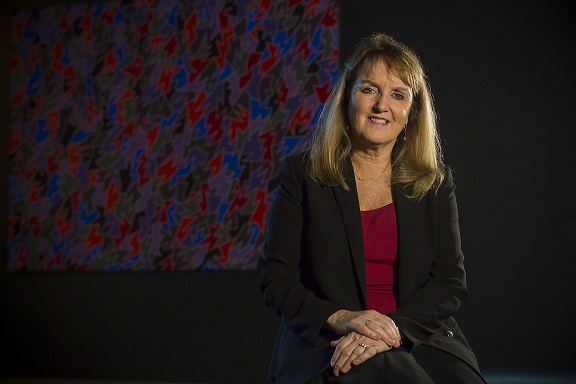
There is a story circulating that has a number of variations in the telling, but basically goes like this:
Two young fish were swimming past an older fish who said to them as they passed, ‘Hi boys – how’s the water?’
‘Good,’ they nodded as they swam by him. Once out of earshot, one turned to the other and said ‘What’s the water?’
‘Dunno,’ he replied.
And they swam on.
It’s the water that is being explored in this book. As a teacher researching her own practice, I had to learn to ‘make the familiar strange’, as anthropologist Clifford Geertz coined it in the 1970s. It’s an exhausting process to continually question the assumptions underpinning ‘common sense’ ways of being. These assumptions have been inculcated in our thinking from a young age and accepted by us long ago as ‘given’. It is often only when we are confronted by a culturally different proposition that we might question our own premises and wonder at their own arbitrariness. It can take us down risky paths – in my case, ‘school’ became an increasingly odd and ill-fitting vehicle for young people’s learning. My research led me to conclude most learning that mattered occurred for students out of school, which shook the foundations of my until now unquestioned professional certainties. This unsettling conviction was realigned for me by a colleague, who observed that too many PhDs she had read ‘merely confirmed what the researcher thought she already knew’. There was no element of surprise, and therefore, of learning. The realisation stimulated my research interests and now, as I write, my focus is Catholic mother-daughter relationships and the network of (sometimes tacit) beliefs, values and understandings within which they sit.
Anne perhaps deliberately chose to co-write with non-Catholic friends and colleagues. Writing collaboratively has many benefits, and ‘making the familiar strange’ is not the least of them. As we write, discuss and write again, we are recalibrating our own Catholic/non-Catholic childhoods, critical moments, relationships, views of the world. As we move from the particular to the universal and back again, wrestling with theory in the hope of illuminating our practices and perspectives, we hone the lens through which we examine our own lives. It is Bakhtin’s dialogism in action and feels like a cognitive gym workout. And like a gym session, we engage because we trust that it is an intellectually healthy and meaningful pursuit. It is the challenging of the ‘Dunno’, and the pleasure of the process. Through the joint effort of exploring the water in these chapters, I am hoping to reflect more deeply and critically on the fine-grained differences that give our lives texture. It is how we explain such texture to others that affirms our collective human endeavours, intellectual, spiritual or domestic.
Further Thoughts
When Anne invited me to write with her on Mothers and Daughters, I initially wondered what I, as a non-Catholic, could contribute. As we talked and wrote together, I recalled an American colleague who commented to me once that rain falls on both sides of the border, but how we describe it might well be different. Rain is not culture and I don’t want to dwell on simplistic comparisons, but work, hopes, aspirations are common to us all. I welcomed an offer to explore how faith and culture might impact on women’s choices over generations. My role with Anne began to emerge as interlocutor – were we just describing rain in different ways or was there something particular about rain falling in different places? I came to know some of the mothers and daughters as the project grew, and the cultural merged with the personal. Blurred lines are what qualitative enquiry navigates well, asking deeper questions of the small details, expanding possibilities and coming to know in different ways. It was a privilege to be engaged on this local, intimate level, and a significant pleasure to share the process of Anne’s achievement.
Recent publications:
Crowhurst, M. and Faulkner, J. (2018). ‘This course made me feel guilty to be an Australian’ Exterior assemblages and continuing reflections. Qualitative Research Journal, https://doi.org/10.1108/QRJ-D-17-00041
Faulkner, J. (2018). Making and remaking the self though digital writing. In J. Alexander and J. Rhodes (eds.) Companion to Digital Writing & Rhetoric. (pp. 104-112). NY: Routledge.
Faulkner, J., Keary, A. and Drew, J. (2017). Resilience, Global Threat and International Professional Experience. A. Fitzgerald, G. Parr, and J. Williams, (eds). Narratives of learning through international professional experience. (p. 153-167). Springer: Singapore.
Keary, A. and Faulkner, J. (2020). Hopes and Dreams. In A. Keary (eds.). Education, work and Catholic life: Stories of three generations of Australian mothers and daughters. (pp. 151-162), Springer: Singapore.
Keary, A. and Faulkner, J. (2020). Stories that memorabilia tell in mother-daughter exchanges. In A. Keary (eds.), Education, work and Catholic life: Stories of three generations of Australian mothers and daughters. (pp.179-200). Springer: Singapore.
Latham, G. and Faulkner, J. (2017). Teachers for the 21st Century: What Figurative Language Reveals about Shifting Selves in Professional Landscapes Canadian Journal for Teaching Research (May edition) http://www.teacherresearch.ca/blog/article/2017/05/28/315-teachers-for-the-21st-century-what-figurative-language-reveals-about-shifting-selves-in-professional-landscapes
Parr, G. and Faulkner, J. (2017). Self-interest and ethical praxis in an international teaching practicum: Investigating the tensions and synergies. A. Fitzgerald, G. Parr, and J. Williams, (eds.). Narratives of learning through international professional experience. (pp.153-168), Springer: Singapore.
Zheng, H., Keary, A. and Faulkner, J. (2018). “What is finger knitting?” Chinese pre-service teachers’ initial professional experience in Australian Early Childhood Education. (pp.123-142.) Springer: Singapore.